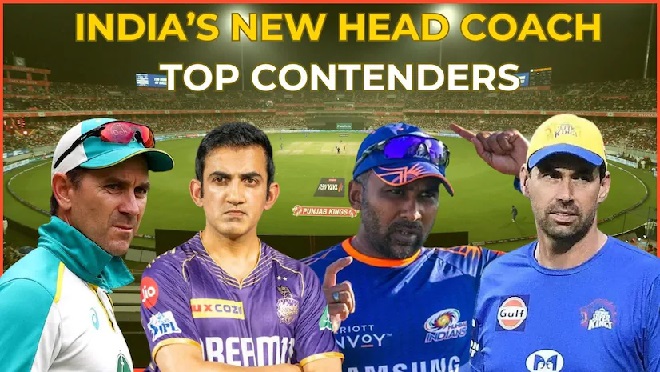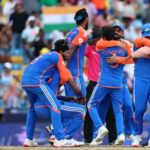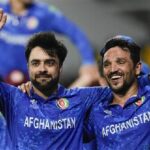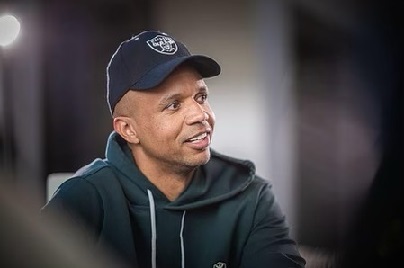Introduction: Indian Cricket Team Coaches
Indian cricket has evolved over decades to become one of the most celebrated sports globally. A significant factor contributing to the team’s success is the leadership and expertise of its coaches. From the early days of Indian cricket to the modern era, coaches have played pivotal roles in shaping the players, strategies, and overall performance of the team.
This blog dives deep into the history, roles, and notable coaches of the Indian cricket team. It highlights their achievements, challenges, and the immense influence they have had on Indian cricket.
The Role of a Coach in Cricket
A coach is not just a mentor; they are strategists, psychologists, and sometimes disciplinarians. In cricket, the role of a coach is multifaceted, encompassing:
- Tactical Planning: Designing game strategies and adapting to opponents.
- Player Development: Enhancing skills and guiding players to overcome weaknesses.
- Team Cohesion: Building a strong team culture and ensuring harmony.
- Fitness & Discipline: Supervising fitness regimens and instilling discipline.
- Mental Toughness: Preparing players to handle pressure during high-stakes matches.
Evolution of Coaching in Indian Cricket
Coaching in Indian cricket has undergone a significant transformation:
Pre-1980s: The Non-Professional Era
- During the early days, there were no full-time coaches. Senior players often guided the team.
- This period saw a reliance on captains for tactical decisions.
1980s-1990s: The Emergence of Professional Coaches
- Bishan Singh Bedi was among the first to take up the formal coaching mantle.
- Foreign coaches started making an impact, bringing global expertise to the team.
2000s Onwards: The Modern Era
- This era introduced specialized coaching roles: batting, bowling, and fielding coaches.
- With the rise of T20 cricket, the focus on fitness and analytics increased.
Notable Indian Cricket Team Coaches
Here’s a detailed look at some of the most influential coaches in the history of Indian cricket.
| Coach Name | Tenure | Achievements |
|---|---|---|
| Ajit Wadekar | 1992-1996 | Guided India to its first-ever ODI series win in South Africa. |
| John Wright | 2000-2005 | Led India to the 2003 World Cup Final and historic Test wins in England and Australia. |
| Greg Chappell | 2005-2007 | Focused on young talent like MS Dhoni but faced criticism for controversial decisions. |
| Gary Kirsten | 2008-2011 | Coached India to its historic 2011 ICC Cricket World Cup victory. |
| Ravi Shastri | 2014-2021 (various) | Led India to Test series wins in Australia and an ICC World Test Championship Final appearance. |
| Rahul Dravid | 2021-present | Focusing on building a strong bench strength and developing young talent. |
Key Contributions by Foreign Coaches
The inclusion of foreign coaches brought a new dimension to Indian cricket:
- John Wright (New Zealand): The first foreign coach of India, Wright emphasized discipline and teamwork. His tenure is remembered for India’s resurgence in the early 2000s.
- Gary Kirsten (South Africa): Known for his calm demeanor, Kirsten’s tenure saw India achieve the pinnacle of success with the 2011 World Cup win.
- Duncan Fletcher (Zimbabwe): Focused on transitioning Indian cricket after the retirement of legends like Tendulkar, Dravid, and Laxman.
Challenges Faced by Indian Cricket Coaches
Coaching the Indian cricket team is not without its challenges:
- Media Pressure: Coaches often face intense scrutiny from fans and media.
- Diverse Player Personalities: Managing a team with players from varied backgrounds is a complex task.
- High Expectations: Consistently performing in all formats is a demand that adds pressure.
Specialized Roles in Modern Coaching
Today, coaching is no longer limited to a single head coach. Indian cricket employs specialized coaches for:
- Batting: E.g., Sanjay Bangar, Vikram Rathour.
- Bowling: E.g., Bharat Arun, Paras Mhambrey.
- Fielding: E.g., R. Sridhar.
- Analytics and Strategy: Data analysts provide insights to assist decision-making.
Insights from Indian Cricket Team Coaches
Gary Kirsten on Team Spirit
Kirsten emphasized the importance of building trust and camaraderie within the team, which played a crucial role in the 2011 World Cup success.
Ravi Shastri on Resilience
Shastri often spoke about instilling a fearless approach in players, especially during India’s Test wins in Australia.
Future of Coaching in Indian Cricket
With the rise of technology and analytics, the future of coaching will likely focus on:
- AI and Data-Driven Strategies: Leveraging technology for performance enhancement.
- Specialized Mental Conditioning: Ensuring players are mentally prepared for high-pressure games.
- Grassroots Development: Identifying and nurturing talent at a young age.
Conclusion: Indian Cricket Team Coaches
The Indian cricket team’s journey is a testament to the invaluable role of its coaches. From building individual skills to crafting winning strategies, coaches have been at the heart of India’s cricketing success. As cricket continues to evolve, so will the role of coaches, ensuring that Indian cricket remains at the forefront of the global stage.
FAQs: Indian Cricket Team Coaches
1. Who is the current coach of the Indian cricket team?
As of 2024, Rahul Dravid is the head coach of the Indian cricket team.
2. Which coach led India to its first World Cup win?
Kapil Dev was the captain, but India didn’t have a dedicated coach during the 1983 World Cup. However, Gary Kirsten coached India during the 2011 World Cup win.
3. Why are foreign coaches significant for India?
Foreign coaches bring diverse experiences, global tactics, and a fresh perspective to the team, often helping players adapt to international standards.
4. How are modern coaching methods different?
Modern coaching integrates advanced technology, fitness science, and mental conditioning, making it a holistic approach compared to traditional methods.
Read Also: Cricket Score IND vs SA – Latest Updates, Highlights & Stats -HZNXTIPS






